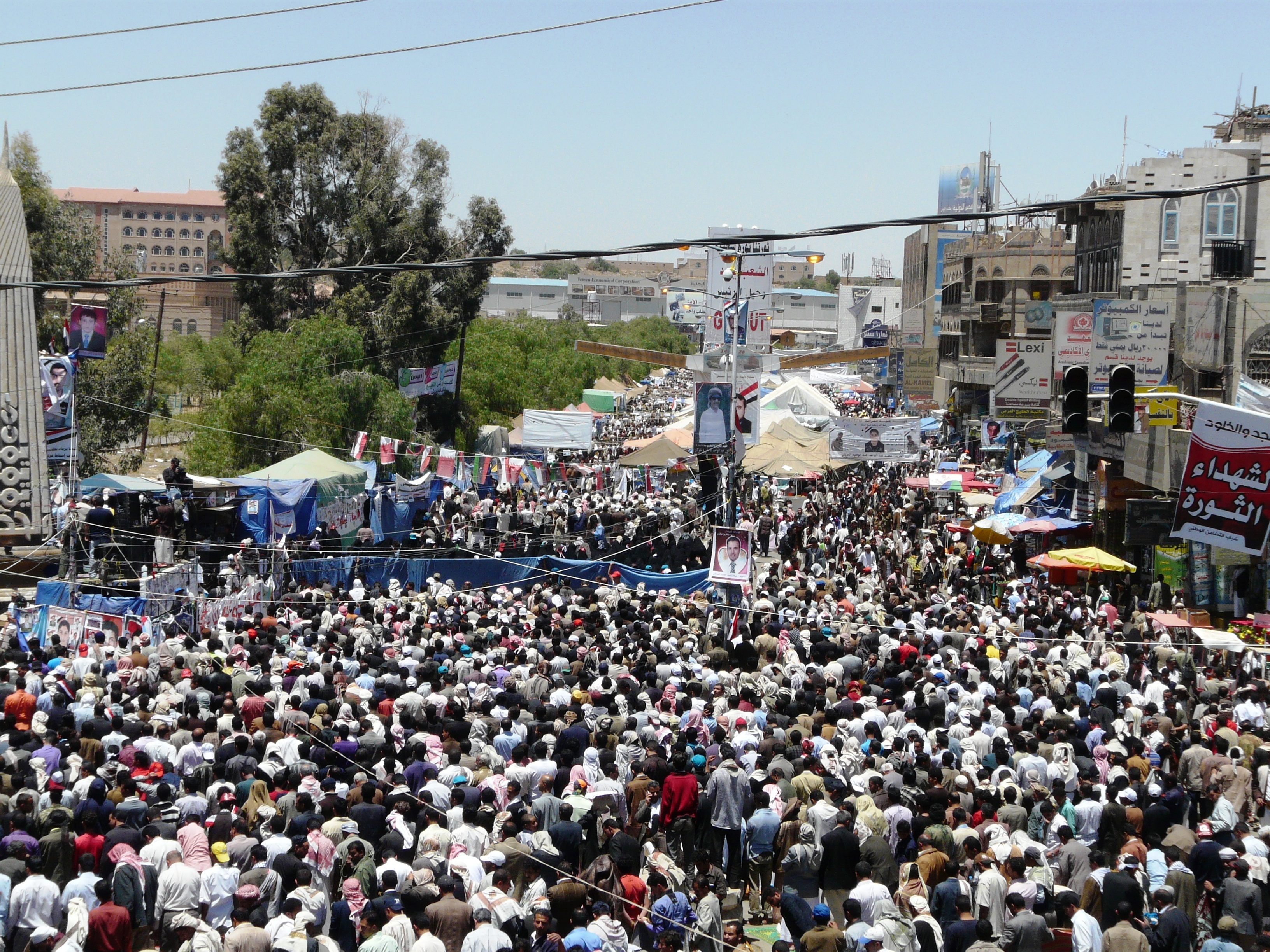The state of Yemen is on the brink of failure. Following months of protests and sit-ins by Houthi rebels, the Shiite group overtook the presidential palace in Yemen’s capital on January 20 2015, leading the governing caucus to resign. Though the Houthi Shiite movement seems to be capturing the media spotlight, Yemen is experiencing a confluence of conflicts. While the Houthis gain territory and influence in northern Yemen, al-Qaeda in the Arabian Peninsula (AQAP) is capturing the support of Sunni Muslims, and southern separatists have publicized their intention to secede and declare independence from Yemen. Further, instability is destined to exacerbate the humanitarian crisis that has left millions of Yemenis in need of aid. As each of these interrelated issues go unresolved, the state of Yemen is heading for failure.
The Houthis, also know as the Partisans of God, are an insurgent group composed of Shiite Muslims and led by Abdul-Malik al-Houthi. Accusing the Yemeni government and former President Ali Abdullah Saleh of widespread and systematic discrimination, the Houthis launched a rebellion in 2004. Though the movement has been active for almost a decade, the Houthis escalated their effort in September 2014, mobilizing thousands of supporters who took part in sit-ins to protest the revised constitution and a slash in fuel subsidies. The conflict intensified as Houthi rebels seized control of the presidential palace and government institutions, leading President Hadi and his ministers to resign on January 22. Currently, the Houthis hold de facto control over as many as 9 of Yemen’s 22 provinces, including Sanaa, the nation’s capital.
Though the Houthis have had success in capturing state institutions and consolidating power in parts of Yemen, AQAP continues to violently contest Houthi control of Sanaa. Formed in 2009 as a merger between Yemeni and Saudi al-Qaeda branches, the Sunni group AQAP seeks to establish an Islamic State, and has launched a series of attacks against the Houthi rebel group in recent months. Accordingly, the power vacuum left by the Yemeni government has opened the door to an all-out war for control over the capital.
As attention is directed toward the newly realized power of Houthi militants and their rivalry with AQAP, the southern secessionist movement in Yemen is looking to capitalize on the distraction and chaos in northern Yemen. The southern secessionist movement, known as the Hirak, is popular in many regions that were once part of the People’s Democratic Republic of Yemen, an independent Marxist state that unified with the Yemen Arab Republic in 1990. Gaining influence in recent years due to soaring unemployment and a sense of alienation and neglect from the central government in Sanaa, leaders of the separatist movement have taken to the airwaves in the past few weeks to call for independence. Closing all borders into the province of Aden, Hirak authorities in south Yemen have ordered all political and security leaders to ignore orders from Sanaa, and take full control of their regions. Indeed, anarchy in Yemen’s capital continues to embolden southern secessionists who were defeated in a bloody civil war during the 1990s.
Though lawlessness and confusion within Yemen may provide an opportunity advantageous to the Houthi movement, AQAP, as well as southern separatists, political instability will inevitably intensify the unrecognized humanitarian disaster within the Middle Eastern nation. Oxfam International, an organization committed to the eradication of poverty in underdeveloped regions of the world, published a report stating that ten million Yemenis do not have enough to eat, including almost a million acutely malnourished children. Further, “throughout the country there are 16 million people in need of aid, meaning one in three people needing help in the entire Middle East is Yemeni.” With the collapse of a functional government in Sanaa, a disastrous economy, and violent conflict deterring international humanitarian relief, millions of lives will continue to be lost.
According to the Fund for Peace, a think tank that works to prevent violent conflict and promote security, characteristics of state fragility include: 1) the loss of physical control of its territory; 2) the erosion of legitimate authority to make collective decisions; 3) an inability to provide public services; and 4) the inability to interact with other states as a member of the international community.
First, the Yemeni government has lost control of nearly all its territory; with the AQAP and the Houthis battling over the physical control of territory in the north, and southern separatists operating autonomously in the south. Further, after the resignation of the President and Cabinet members, the Yemeni government not only lacks legitimate authority to make collective decisions, but also is completely void of a centralized authority. Third, illustrated by the 16 million Yemenis in need of aid, the state of Yemen is incapable of providing the most basic public services to their citizens. Lastly, as Houthi rebels have captured government institutions such as state media and intelligence, the international community has largely been unable to communicate with the capital.
Yemen is experiencing a level of political instability and uncertainty that has caused the state to collapse. As conflict continues and sectarian violence intensifies, the humanitarian crisis will deepen, and Yemen may plunge into civil war.




